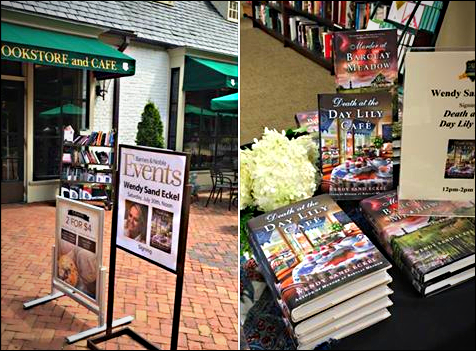Sample from the Authornomics Interview. More can be found here.
What do you usually look for in a pitch? What’s one of the biggest turn-offs for you in a pitch?
A pitch that is imprecise, muddled, or way too long, or some combo
thereof, creates a condition of frustration for all concerned—unless and
until a way can be found to correct it. For many, this actually
involves a rewrite of the novel. The pitch is simply a method of
artfully communicating what your novel or nonfiction is about. If you
can’t communicate a project that will sell, it usually means you have
not written a project that will sell. At this juncture, we use the pitch
as a means of driving further into the story. The intent is to discover
what is working, what is not, and what, if anything, is missing. Plot,
premise, characters, theme, everything is out on the table. Many of our
writers have completely rewritten their novels as a result of the pitch
process, and several have been published because of it. A good example
is Kim Boykin, the author of The Wisdom of Hair.
What does your position as an associate for AEI Film Productions involve? How did you first get into this area?
I moonlight as an agent and developmental editor for AEI and
StoryMerchant. I’m now the AEI Associate for the SF Bay Area. The owner,
Ken Atchity, became acquainted with Algonkian and attended some of our
events. Recently I have helped develop, edited and agented, or
co-agented, two important books: Rise of the American Corporate Security State—Six Reasons to Be Afraid, a nonfiction by Beatrice Edwards (Berett-Koehler), and Killer on the Wall,
a “social media cozy” by Wendy Eckell (Thomas Dunne). Several more
novels are on the way, including another high-concept cozy mystery and
an adult fantasy novel with series potential. Also, several Algonkian
books have been ushered into contracts with AEI/SM, most recently The Last Scribe by Rachel Walsh, currently in development.
On the film side, we are working to produce Firehouse Shih-tzu, a comic film about a hero “firehouse dog” out to stop a dangerous arsonist in Brooklyn. I co-wrote the script. The sequel, Up Shih-tzu Creek Without a Poodle,
is being written. It’s amazing what inventiveness can erupt from three
bottles of Napa Cabernet. Additionally, we are also working to produce Message to Shigatse,
a controversial humanist film from NextPix productions about the
Chinese kidnapping of the Panchen Lama. The hunt for a lead actress is
underway. We have feelers out to Kate Winslett’s camp at the moment.
Fingers X’d!
What are some of the biggest challenges you find in transforming books into films? Can a film ever be as good as a book?
High-concept genre books are generally easy to convert to the
three-act film structure. They hit the same plot points and notes. But
we all know that the film medium is limited to what it can display or
provoke. Novels are not. The great novel will always outweigh the film
because it can contain so much more, go more places, reveal more things.
That’s not to say a good movie can’t be better than the novel upon
which it was based. There are always exceptions. I’ve heard competing
opinions re SIDEWAYS, for example.
[ More ]
Tuesday
Subscribe to:
Posts (Atom)

